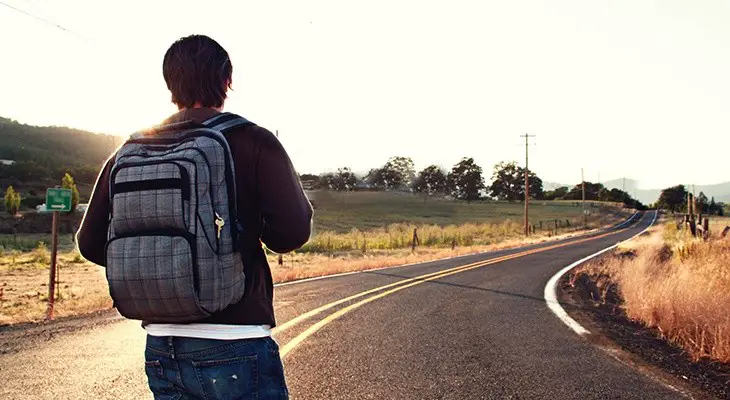Backpack Vs. Bookbag (Key Differences Explained)
Backpacks and bookbags have become interchangeable over the years. However, these two words have a few key differences that must be taken into account. Read on to discover what the backpack vs bookbag differences are and which is best for you.
What is a Bookbag?
A bookbag is relatively self-explanatory – it is designed to carry books. Typically used by schoolchildren and college students, bookbags are meant to hold school supplies, textbooks, and other school paraphernalia.
They usually have one or two shoulder straps and are lightweight but have limited space. Bags for schoolbooks usually only have 1-3 pockets and are not as durable as backpacks.

What is a Backpack?
Also self-explanatory, backpacks are bags designed to be carried on your back. They have two sturdy and cushioned shoulder straps and lots of pockets and space for supplies, gear, and clothes.
The pockets are usually dedicated compartments designed to hold specific tools or items. Backpacks are generally heavier and larger and have added features for comfort during long trips.
Backpack Vs. Bookbag (What’s the Difference?)
The difference between backpacks and bookbags is easy to spot once you know how. These similar but inherently different bags are different in many ways, including, but not limited to:
Bookbags are smaller and lighter than backpacks, have simple shoulder straps, and very few pockets. They come in a wide range of designs and materials and can often be monogrammed. Bookbags are meant for laptops and textbooks rather than carrying heavy loads over the span of multiple days.
Backpacks are heavier and larger than bookbags and often come with mesh lining, padded straps, and daisy chain loops for optimal packing and weight distribution. This bag style is comfortable and ergonomic to wear. It is typically more durable and water-resistant than its bookbag counterparts. Typically, if you see a sternum strap or hip belt and a range of pockets, you are looking at a backpack.
Benefits of Using a Bookbag

Benefits of Using a Backpack
Which Bag is Better?
The best bag for you will depend on your situation and routine. If you are a student or parent of a young child, getting a bookbag is much more of a possibility than a backpack. If you are an avid outdoorsman, a backpack is an essential investment for you. Consider your needs carefully and what you take outside with you before purchasing.
However, many people have both bookbags and backpacks in their homes for different scenarios and situations, with bookbags being simple tools and packs reserved for camping getaways and hiking trips. Consider your budget, needs, and personal preferences, and you should find the perfect match.

People Also Ask (FAQs)
Can I use a bookbag for sports?
If the gear fits, then you most likely can. If you are dedicated to a sport such as basketball, you can find specialized bags to store the gear.
Are messenger bags better than backpacks?
That depends on your preferences. Check our comparison guide between a messenger bag and a backpack for more information. However, backpacks are often a better choice to avoid back pain and rounded shoulders over time, as well as other physical issues.
What is the average weight that a bookbag should carry?
Backpack safety is something to consider. According to the American Academy of Pediatrics, a bookbag should carry 10-20 percent of a child’s body weight to avoid and prevent lower back pain in the future.
What happens if your backpack is too heavy?
If your backpack is too heavy, you could experience back pain, neck pain, shoulder pain, rounded shoulders, poor posture, a ripped pack, strained muscles, and a potential fall.
Conclusion
While bookbag vs. backpack differences may seem minor, they can make a big difference to your daily routine and physical health. Choose carefully to find the right type of bag for you.
